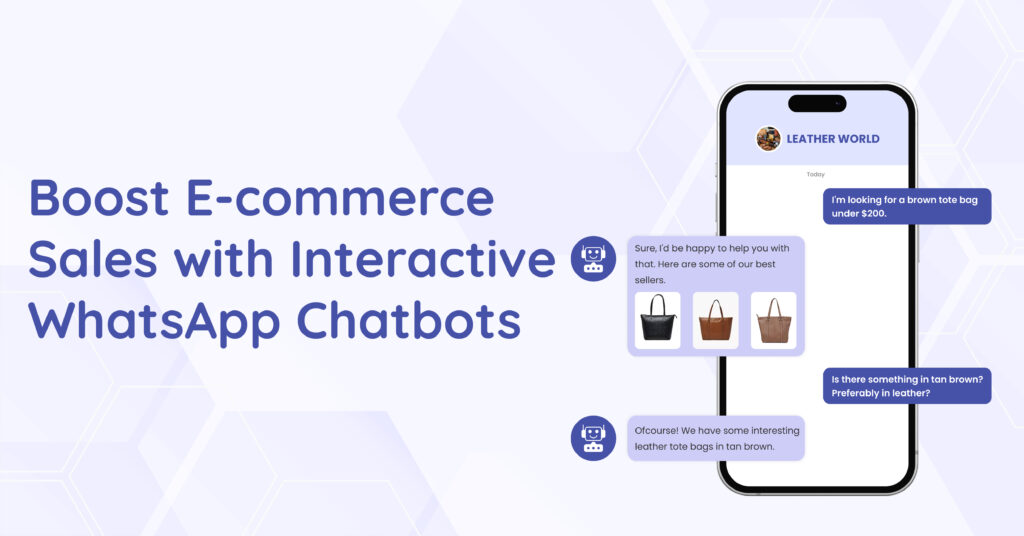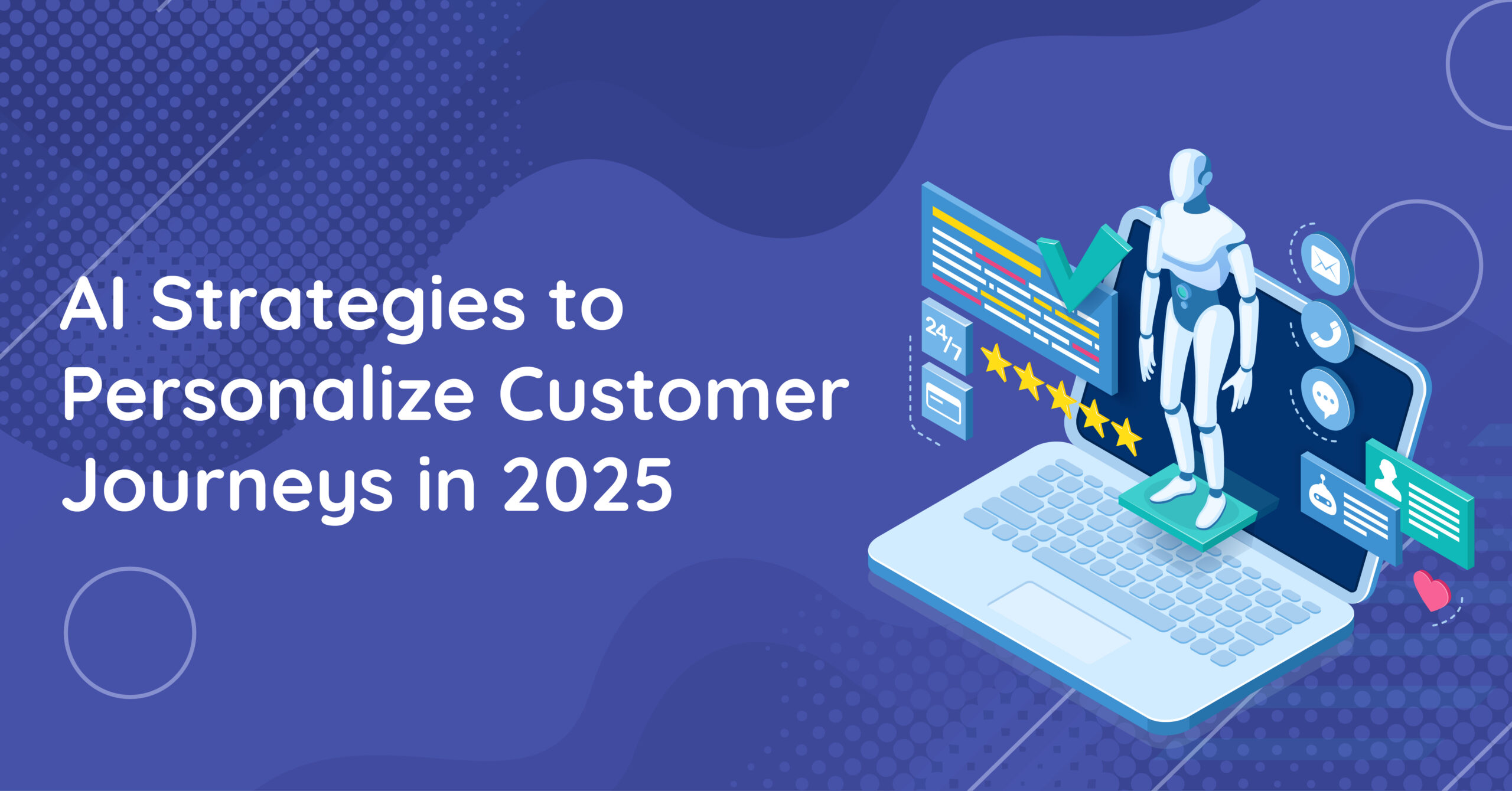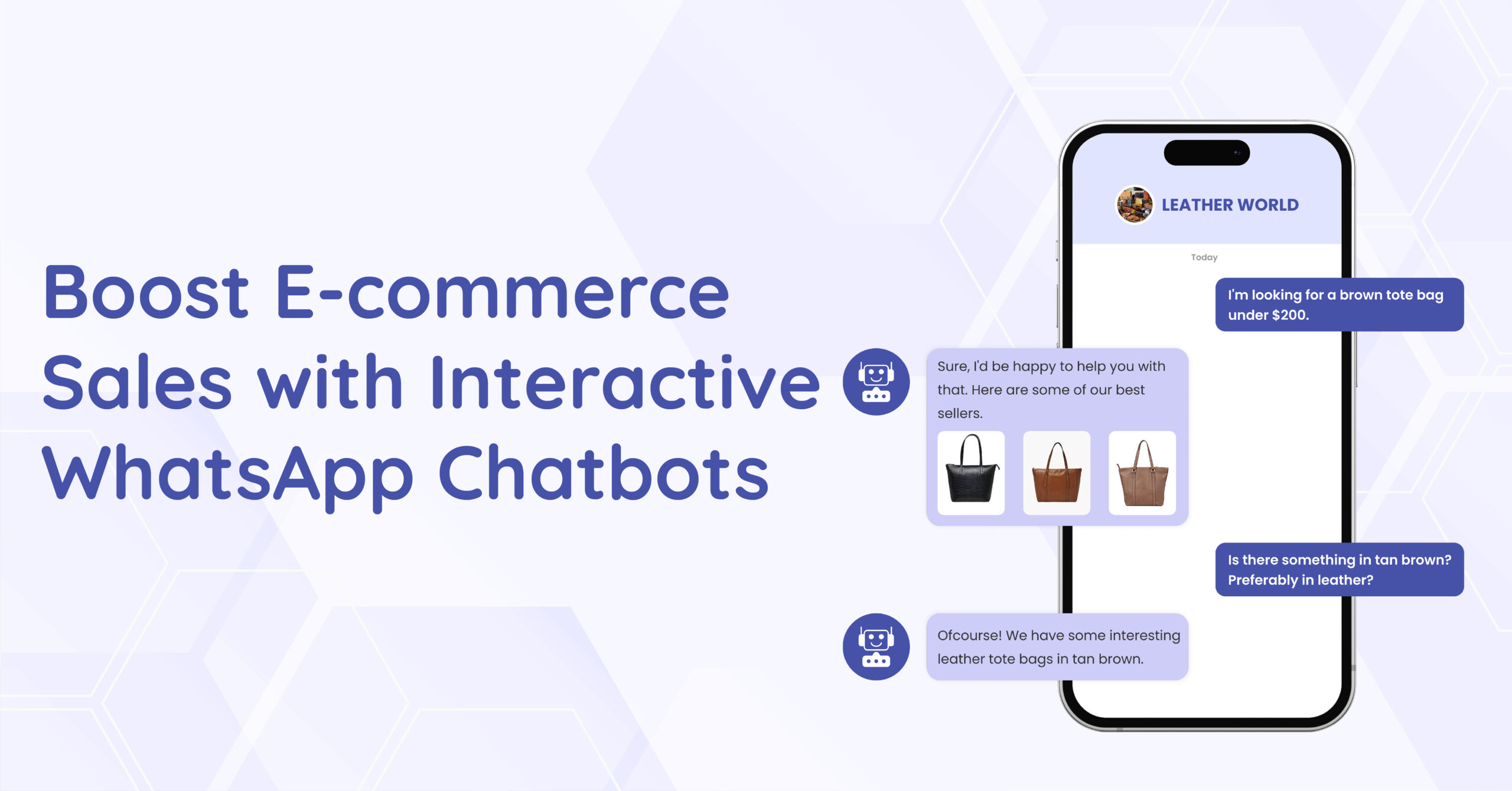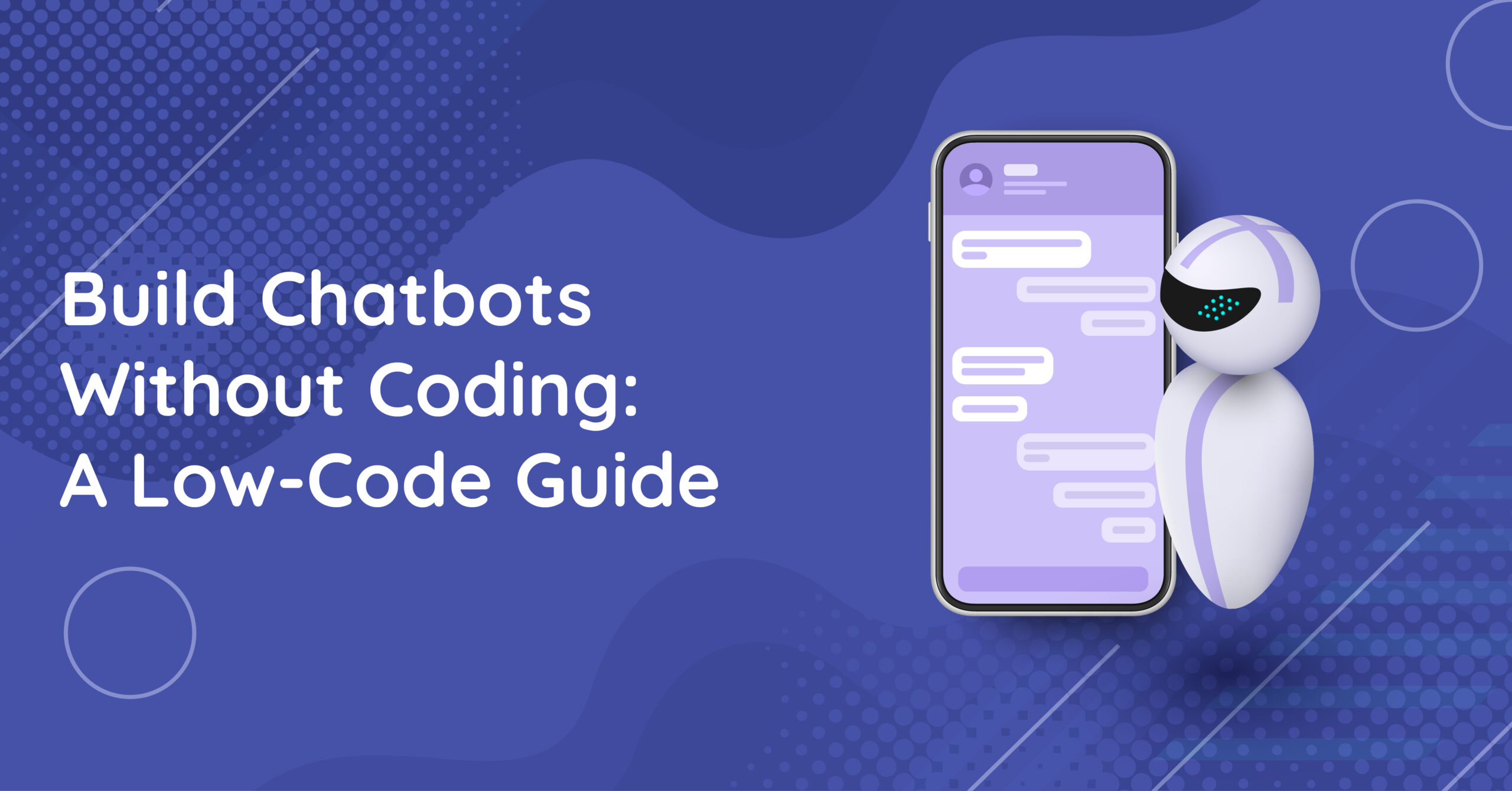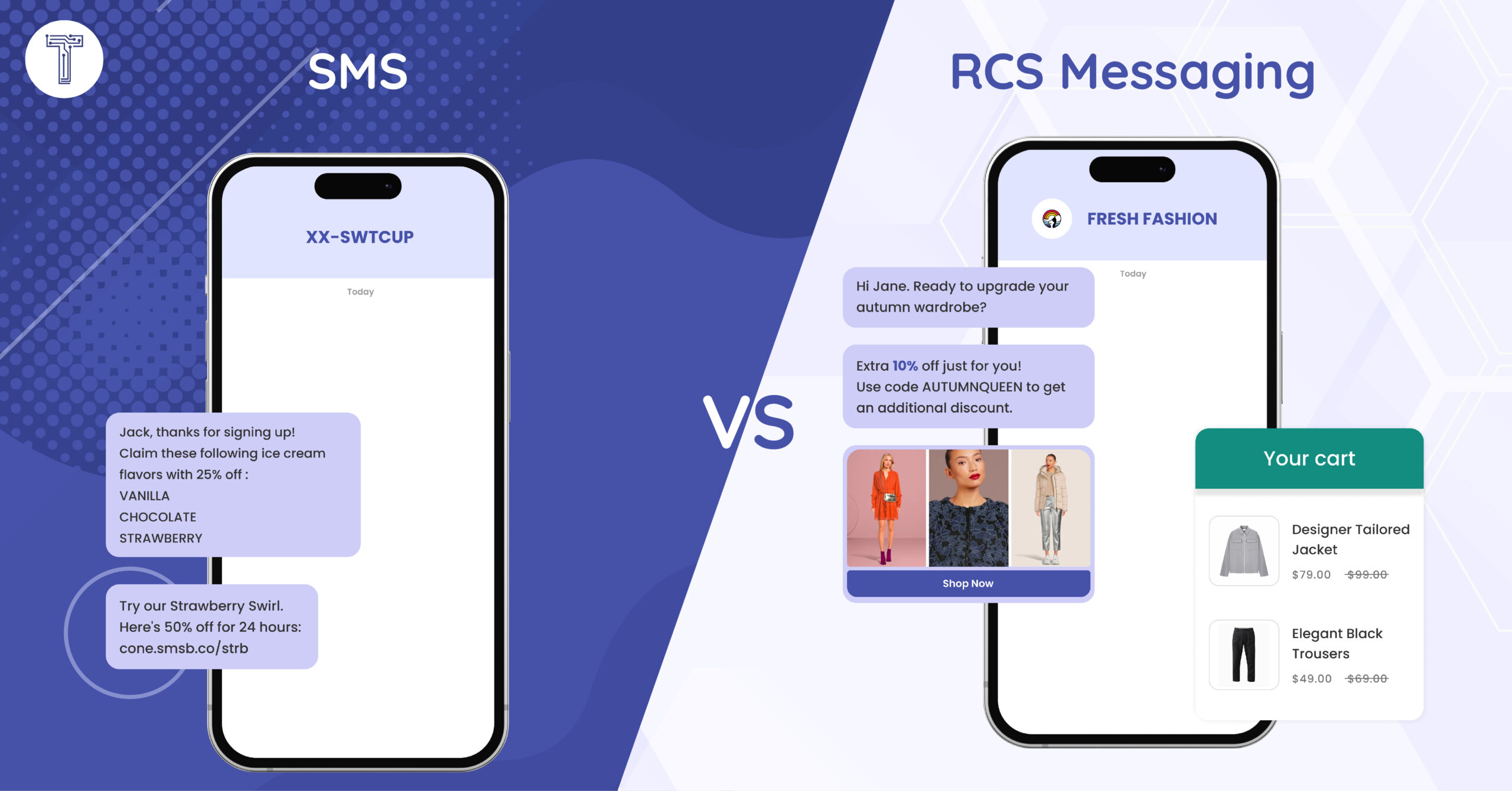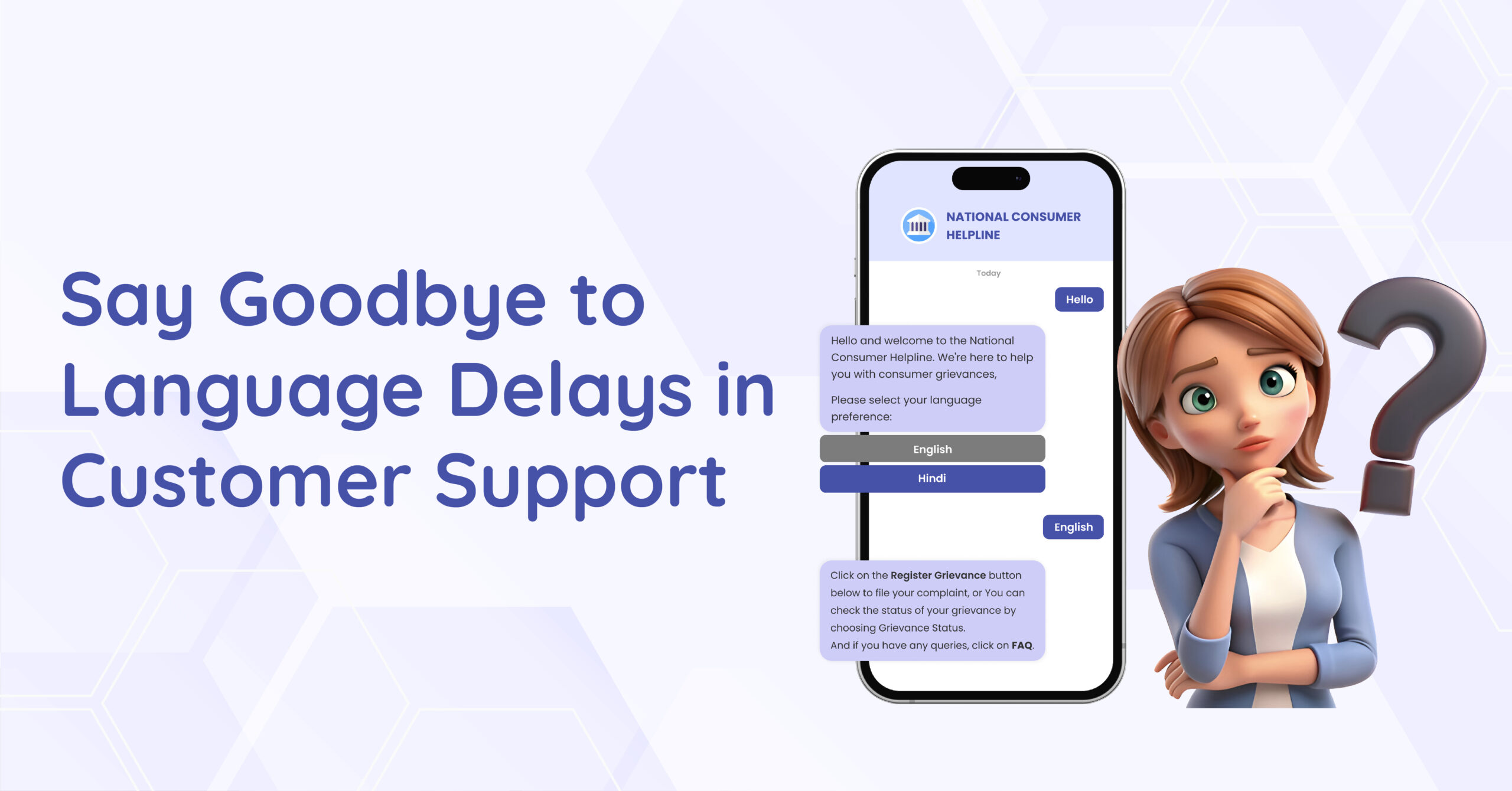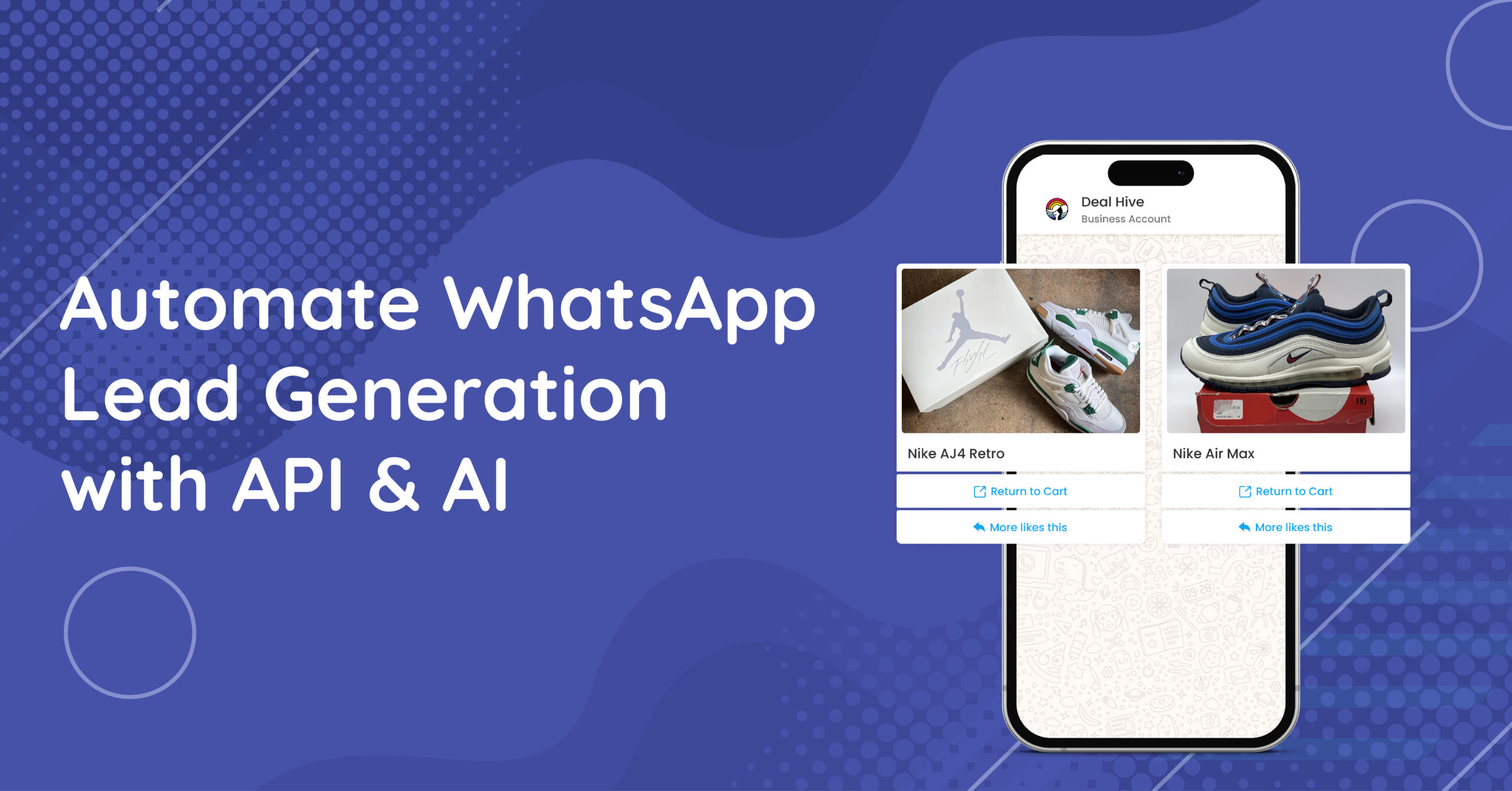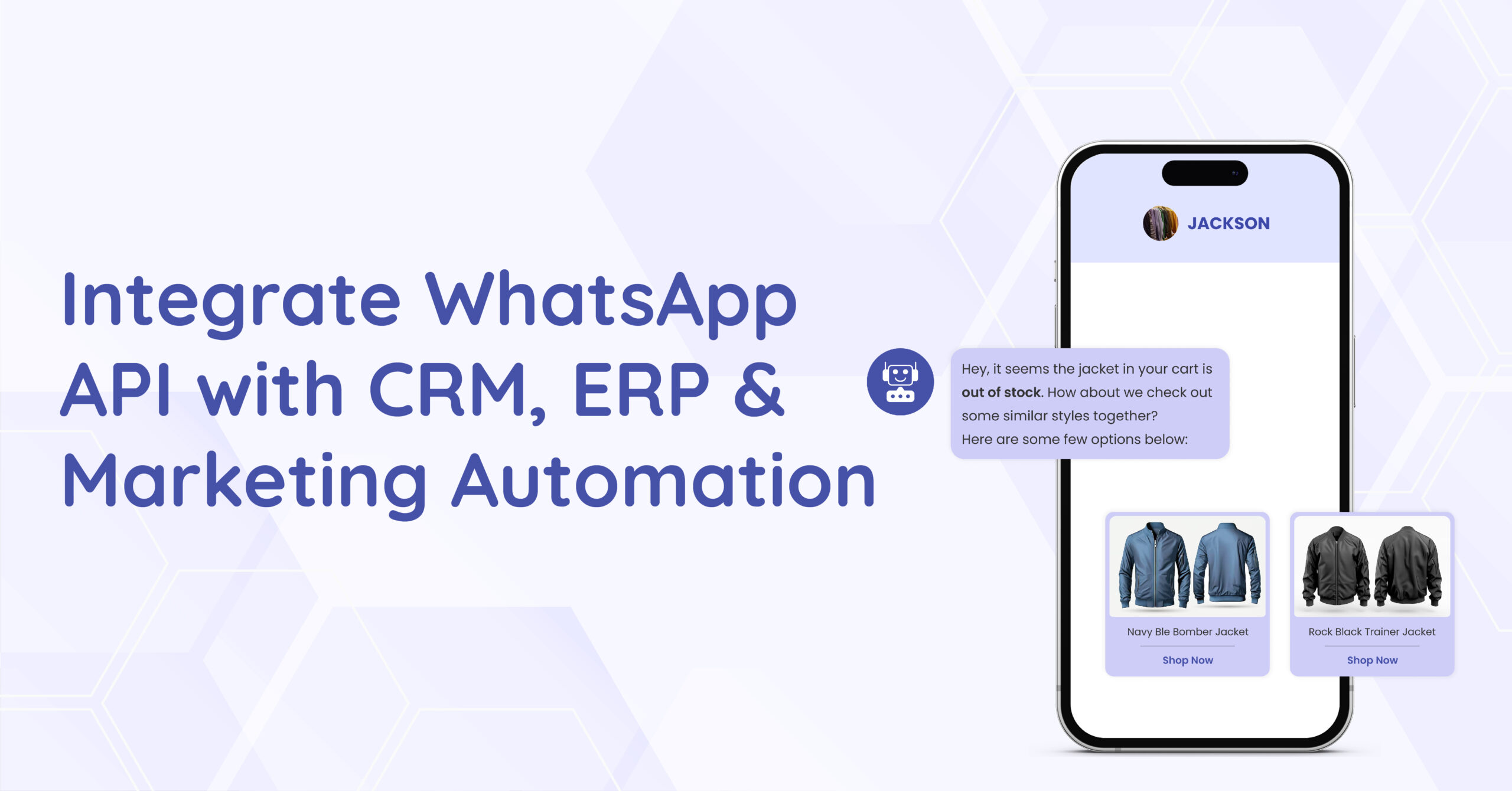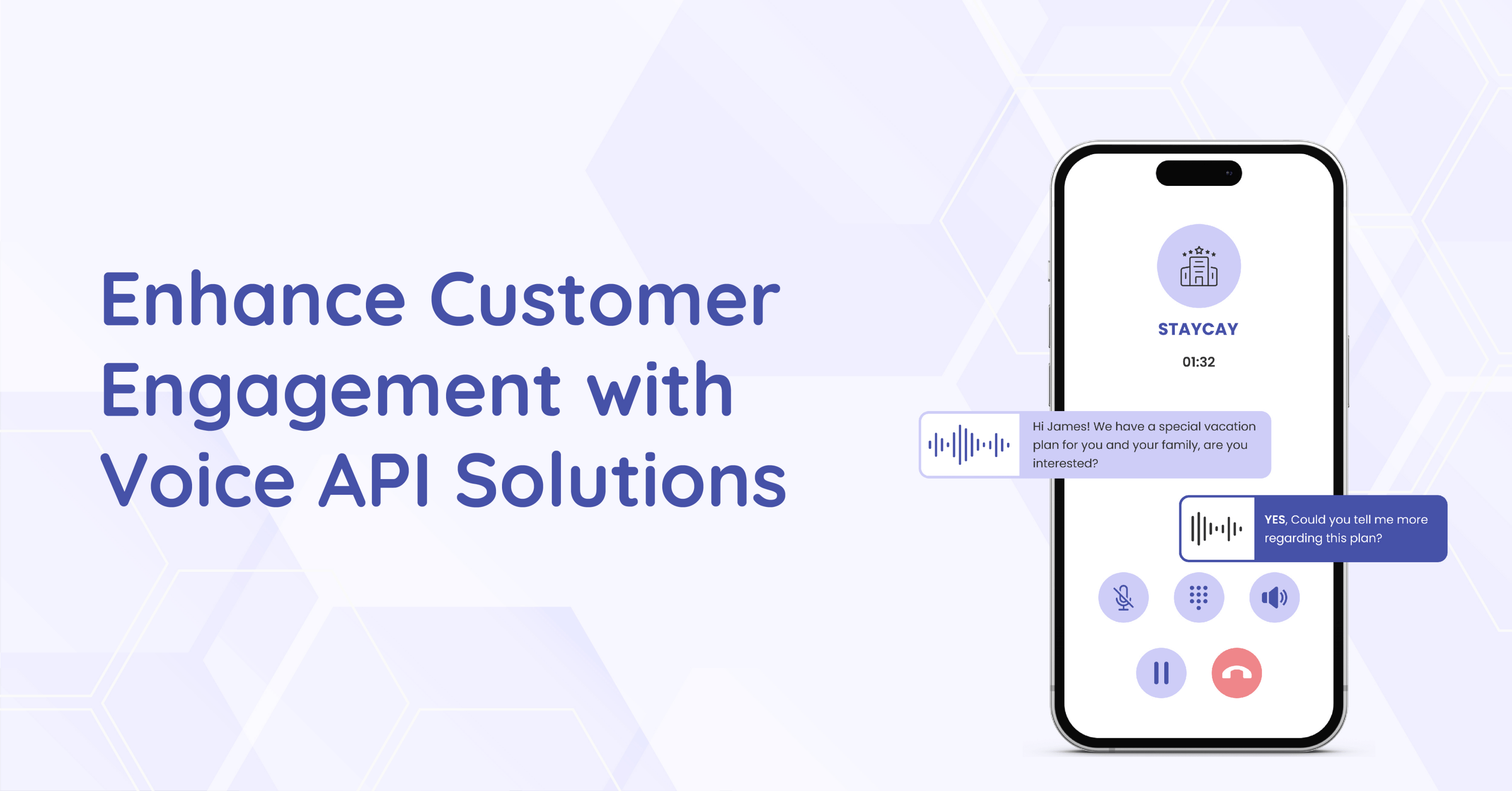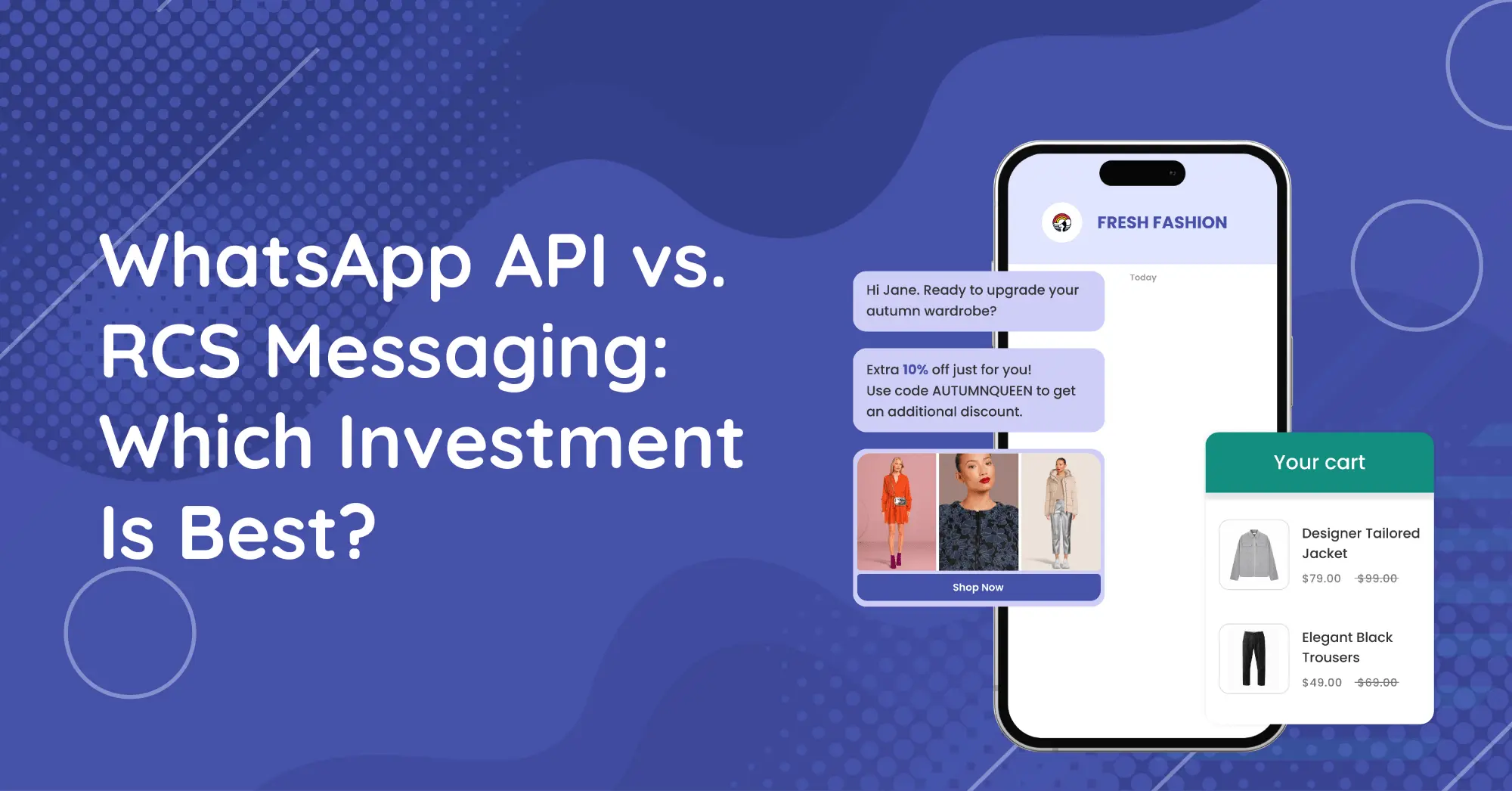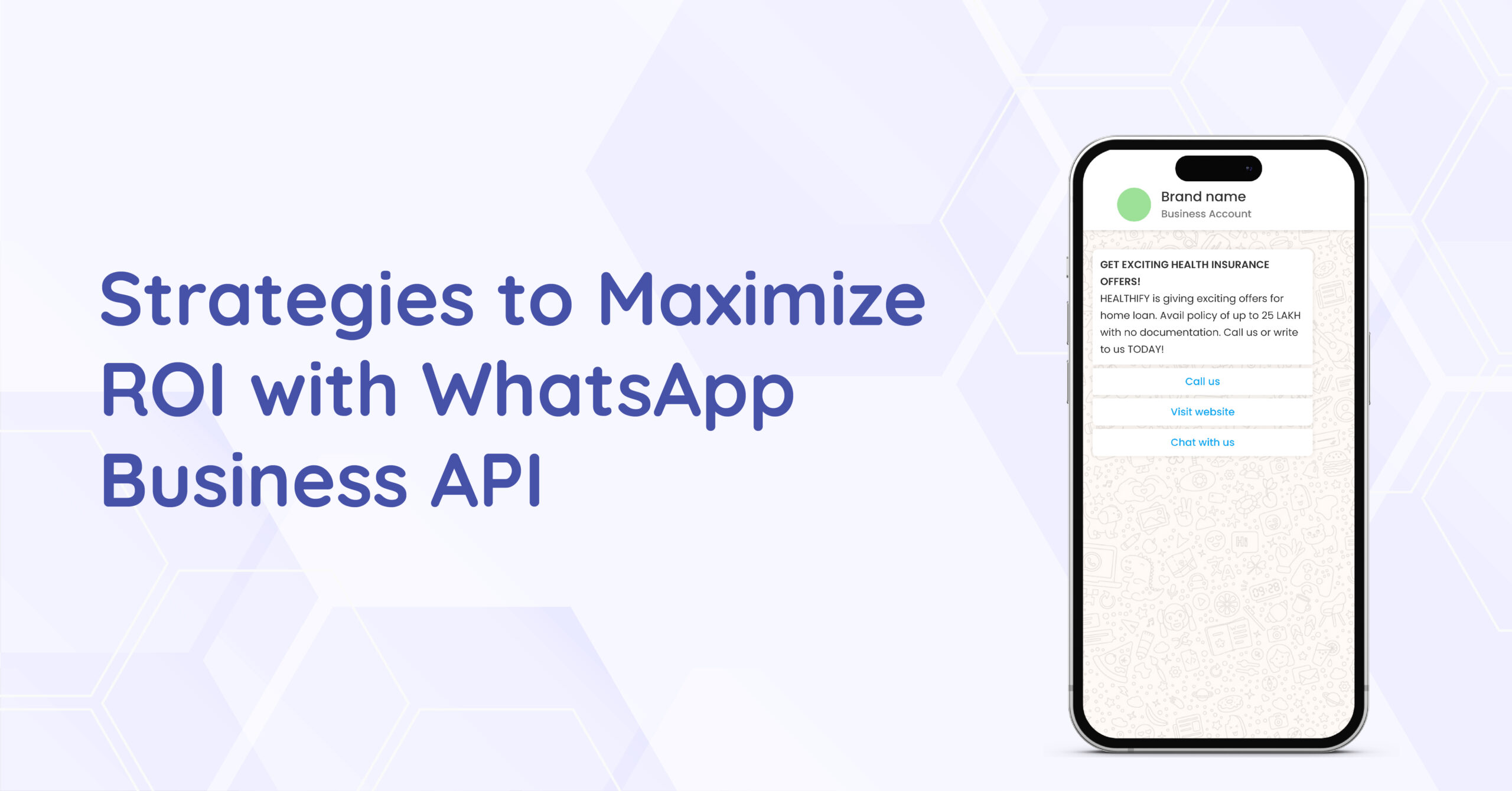Imagine walking into your favorite store. A friendly assistant knows your name, recalls your last purchase, and recommends a product you’ll probably end up buying. Not because it’s pushed aggressively but because it fits your taste, budget, and needs.
That’s the kind of experience e-commerce brands are trying to recreate online. But let’s be honest: most websites are still stuck in 2015: popups, discount codes, and static recommendation engines that make you wonder if they’ve ever looked at your purchase history.
In fact, 78% of customers are more likely to re-purchase from a brand that offers personalized experiences.
Here’s where interactive WhatsApp chatbots steps in as the missing layer of human interaction that brings real-time, one-to-one communication into the e-commerce experience.
Let’s break down what makes WhatsApp automation so powerful, how it’s changing the personalization game, and why interactive chatbots are the future (and present) of smart, scalable e-commerce.
The Problem with Traditional E-commerce Personalization
E-commerce personalization has been talked about for over a decade. Yet, most implementations boil down to basic tactics:
- Recommending similar products
- Triggering emails based on cart abandonment
- Segmenting users by location or behavior
These methods aren’t bad. But they’re not exactly personal. They rely on guesswork, and worse, they’re passive. You wait for the user to act, then respond.
Modern consumers? They want instant help, suggestions that actually make sense, and the ability to ask questions, just like they would in a physical store.
Why WhatsApp and Why Now?
Let’s start with the basics: WhatsApp is where your customers already are.
With over 2 billion users, WhatsApp is one of the most widely used messaging platforms in the world. It’s not an app people have to download or check occasionally. It’s already a part of their day-to-day communication.
And unlike traditional website chat widgets that feel clunky, or email that often ends up in spam, WhatsApp is personal, fast, and has a 98% open rate.
Now combine that with WhatsApp automation, and you get a powerful tool for real-time e-commerce personalization that doesn’t require hiring an army of support agents.
To understand why WhatsApp stands out, let’s compare it with other popular communication channels used in e-commerce:
Feature / Channel | WhatsApp Chatbot | Email Marketing | Website Live Chat | SMS Marketing |
Open Rate | 98%+ | ~20% | N/A | ~95% |
Response Time | Instant (Automated, 24/7) | Delayed (Hours to Days) | Fast (If agent available) | Instant (But limited interaction) |
Personalization | Dynamic, real-time | Segmented, limited | Moderate (Agent-dependent) | Low |
Interactivity | High (Conversational UI) | Low | High (Human-driven) | Minimal |
Scalability | Highly scalable with automation | Scalable | Limited to agent availability | Scalable but lacks depth |
User Engagement | High (Ongoing 2-way convo) | Low–Medium (One-way mostly) | Medium | Low |
Best Use Case | Personalized sales, support, tracking | Promotions, newsletters, re-engagement | Complex queries, real-time help | Flash sales, urgent alerts |
What Are Interactive WhatsApp Chatbots?
Interactive WhatsApp chatbots are AI-powered systems that can chat with your customers on WhatsApp just like a real human would, only faster, 24/7, and at scale.
They’re trained to:
- Answer product queries
- Help with order tracking
- Offer personalized product recommendations
- Upsell/cross-sell based on user behavior
- Handle returns, exchanges, and feedback
But here’s what sets the good ones apart: chatbot human interaction.
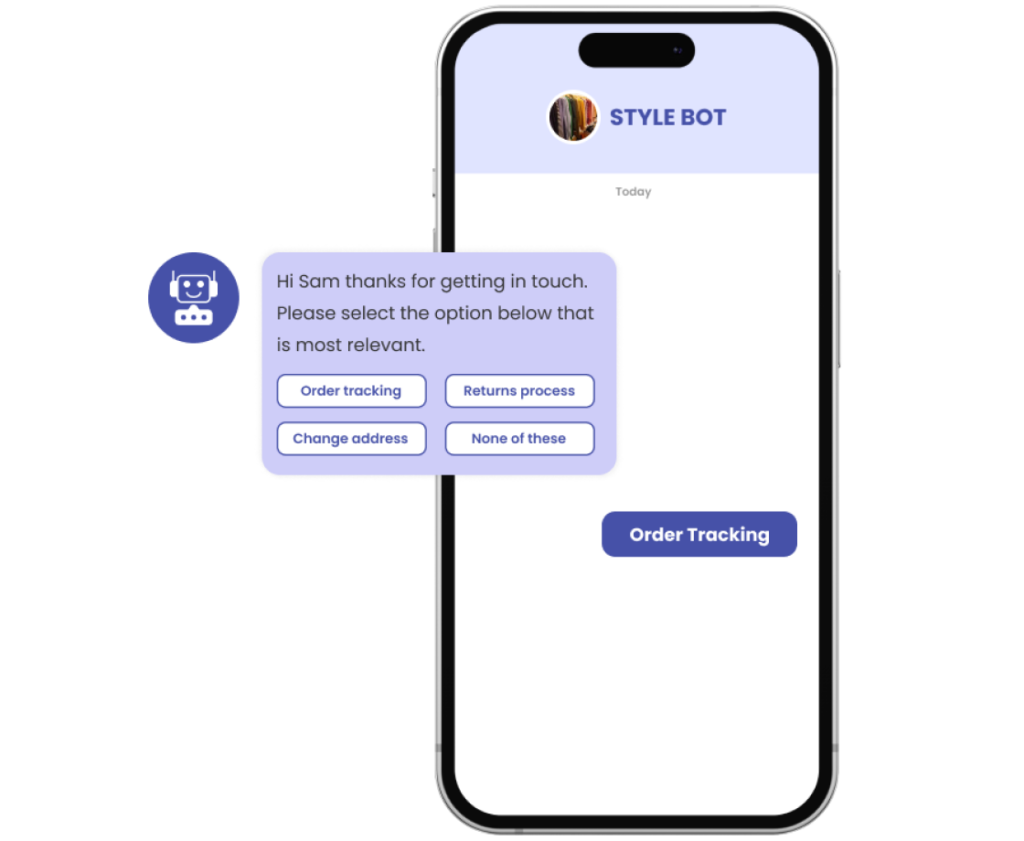
The ability to not sound robotic, to pick up on user sentiment, and to flow naturally through a conversation.
These chatbots don’t just “talk at” your customer, they listen, guide, and engage.
Where WhatsApp Chatbots Shine in E-commerce
Let’s get specific. Here are a few e-commerce personalization use cases where WhatsApp chatbots are proving to be game-changers:
1. Personalized Product Recommendations
Instead of showing everyone the same “Top Picks” section, interactive chatbots can ask the user a few questions, style, budget, occasion, and instantly recommend the right product.
Example:
A user messages: “Looking for a dress for a beach wedding under ₹5,000.”
The chatbot replies with three curated options based on filters + real-time inventory, possibly even styled with accessories.
2. Abandoned Cart Recovery
WhatsApp automation can trigger a friendly, personalized message like:
“Hey [Name], you left a couple of items in your cart 👀 Want us to hold them for you or help you decide?”
It’s a softer, more effective nudge than a generic email subject line.
Case Study: The Pillow Company’s Success with WhatsApp Chatbots
The Pillow Company, a lifestyle and home decor brand, implemented WhatsApp chatbots to address cart abandonment and boost sales.
As per quickreply.ai, by using a whatsapp chatbot platform, they achieved:
- 57.4% increase in net sales
- 14% click-through rate on abandoned cart recovery messages
- 100% conversion rate from these messages
These figures underscore the effectiveness of personalized, timely communication in recovering lost sales and enhancing customer engagement.
3. Real-time Order Tracking
Instead of making users dig through emails or log into their account, they just ask:
“Where’s my order?”
And the chatbot replies instantly with a tracking link and current status.
4. Upselling and Cross-selling
Post-purchase, the bot can suggest complementary products based on what the customer just bought, increasing AOV (average order value) without being intrusive.
“Your new sneakers will pair perfectly with these no-show socks. Want to add them to your order?”
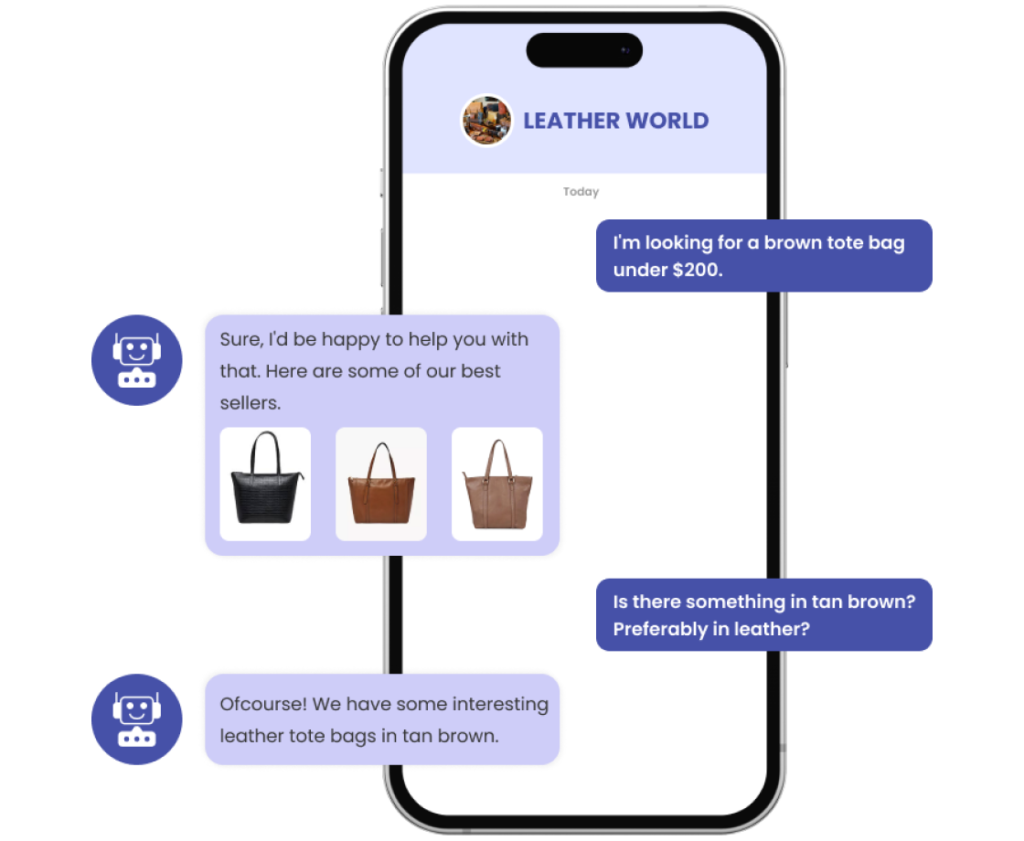
5. Instant Support
No waiting. No tickets. No “our team will get back to you in 48 hours.”
Especially in retail, Whether it’s size queries, product doubts, or refund policies, the chatbot handles it, or routes it to a human seamlessly when needed.
How It Enhances E-commerce Personalization
What’s truly powerful is how these WhatsApp chatbots can learn over time. Based on interactions, purchase history, and user preferences, the system gets smarter.
Each conversation builds on the last, helping the chatbot make smarter, more relevant suggestions over time.
Over time, your chatbot becomes a trusted shopping assistant, not just a customer service bot.
Delivering this kind of tailored shopping experience is hard to pull off on websites or email, but on WhatsApp, it feels natural.
It mirrors how people already communicate with friends, family, and, now, their favorite brands.
Building an Interactive Chatbot for Website Visitors
What if you want the same level of interaction, but for users visiting your website?
Enter: Interactive chatbot for website.
You can set it up so that the website chatbot opens a WhatsApp chat seamlessly. That means:
- A user visits your product page
- They click “Ask a Question”
- They’re redirected to WhatsApp
- The chatbot continues the conversation right there
This approach solves two problems at once:
- Reduces bounce rate by answering questions in real time
- Moves the conversation to a channel with better engagement and long-term retention
It’s something we help businesses implement at Technocore Logic, not just as a plug-in, but as a smart system designed around the customer journey.
Whether you need product support, cart recovery, or conversion-focused campaigns, we can tailor your WhatsApp automation to fit your brand’s exact needs.
The Future Is Already Here
The future of e-commerce personalization isn’t a website widget. It’s not even your email list. It’s a chat thread in a user’s most-used app, delivering value one message at a time.
They remove barriers, deliver real-time clarity, and make your brand feel more human, right when it matters most
They’re how you show up when your customer needs you. Not with a billboard, but with a conversation.
Explore chatbot solutions with Technocore Logic today!

